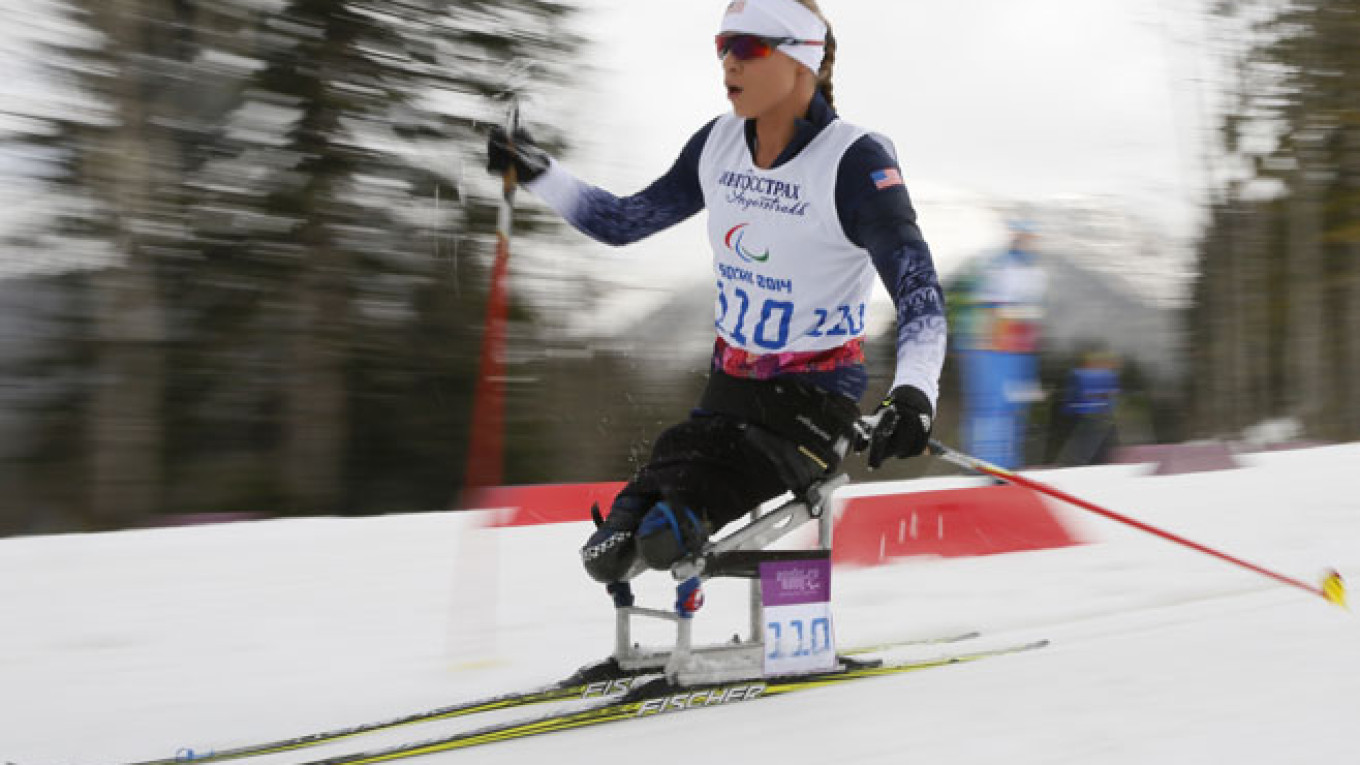The Sochi Paralympic Games have highlighted ongoing spats between Russia and the U.S. over the crisis in Ukraine, but they have also thrust international adoptions into the spotlight as another bone of contention between the two former Cold War powers.
Western government delegations, including those of the U.S., Canada and the Netherlands, boycotted the opening ceremony of the Games to protest Russian intervention in Ukraine. In a sonorous retort to the West's criticism, the Russian Paralympic team marched out to the song "Goodbye America," a popular Russian rock ballad from the 1980s.
But now the mere presence of Team USA's most prolific Paralympians in Sochi — many of whom were adopted from Russia and Ukraine ?€” have brought adoption to the center stage of the U.S.-Russian feud.
Twenty-four-year-old Oksana Masters, who earned the U.S.' first Paralympic cross-country medal in 20 years by winning silver in the 12-kilometer event on Sunday, was adopted from an orphanage in Ukraine in 1997, shortly after the country lifted its ban on foreign adoptions.
Masters is a child of Chernobyl. She was born in Khmelnytskyi, 300 kilometers southwest of the nuclear disaster site, with multiple birth defects in her limbs caused by in-utero radiation poisoning.
She grew up in three different orphanages where she was regularly beaten and raped.
When Gay Masters, a speech pathology professor from Buffalo, New York, decided to adopt Oksana in 1995, Ukraine had suspended foreign adoptions. It was only two years later that Oksana would finally meet her adoptive mother.
"I think it is very unfortunate that there is a ban on adoptions in Russia," Masters said in a telephone interview as she was heading to her medal ceremony on Monday.
"My mom basically saved my life and was able to provide me with proper medical care. I was supposed to be adopted when I was five, but then my adoption was pushed back by two years. It is sad that people have to go through that and hope that the situation will change soon."
Masters' legs, which lacked weight-bearing bones, were amputated above the knee when she arrived in the U.S. Masters, who also won bronze in rowing at the London Summer Paralympic Games in 2012, began skiing less than a year ago.
Denise Roza, the director of Perspektiva, a Moscow-based NGO that strives to improve the well-being of disabled people in Russia, said Masters' feats would have been unlikely if the ban on adoptions had not been lifted.
"There is very little domestic adoption in Russia for children with disabilities," Roza said in a telephone interview. "The few parents who adopt will most often choose a child without a disability. There is no way children with disabilities can become Paralympians if they do not have a family to provide them with opportunities."
According to Roza, children with disabilities often struggle to develop in an orphanage environment. The "family factor" is key to their growth.
"When Russian Paralympic biathlete and cross-country skier Roman Petushkov won one of his gold medals in Sochi, the first person he thanked was his mother," Roza said. "He thanked her for supporting him in hard times. You do not get that if you are raised in an orphanage."
Other prominent U.S. Paralympians have also been outspoken about Russia's ban on U.S. adoptions. Russian-born Tatyana McFadden, a 10-time Summer Paralympic medalist who is now competing in cross-country skiing in Sochi, told CNN in 2012 that "lives would be ruined" by a Russian ban on U.S. adoptions.
In February, Russia expanded its ban on foreign adoptions, prohibiting single people from countries where same-sex marriage is legal ?€” regardless of the prospective parents' sexual orientation ?€” from adopting Russian children.
Contact the author at g.tetraultfarber@imedia.ru
A Message from The Moscow Times:
Dear readers,
We are facing unprecedented challenges. Russia's Prosecutor General's Office has designated The Moscow Times as an "undesirable" organization, criminalizing our work and putting our staff at risk of prosecution. This follows our earlier unjust labeling as a "foreign agent."
These actions are direct attempts to silence independent journalism in Russia. The authorities claim our work "discredits the decisions of the Russian leadership." We see things differently: we strive to provide accurate, unbiased reporting on Russia.
We, the journalists of The Moscow Times, refuse to be silenced. But to continue our work, we need your help.
Your support, no matter how small, makes a world of difference. If you can, please support us monthly starting from just $2. It's quick to set up, and every contribution makes a significant impact.
By supporting The Moscow Times, you're defending open, independent journalism in the face of repression. Thank you for standing with us.
Remind me later.


